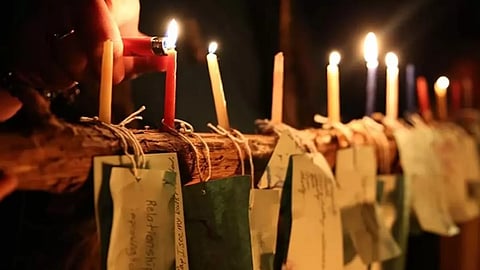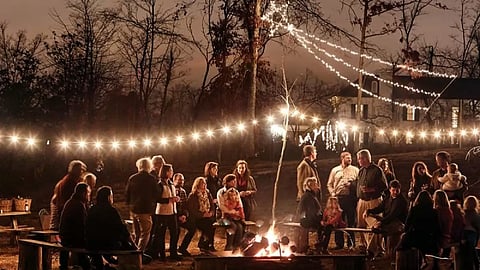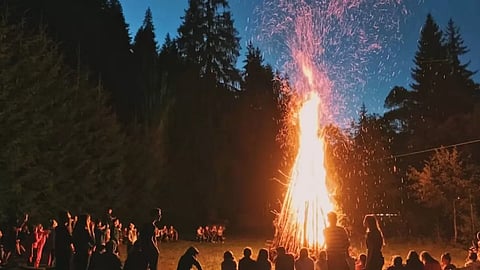As the cold winds sweep across the land and the days grow shorter, a celestial event marks the transition into winter—the Winter Solstice.
Winter Solstice 2023: Meaning, Date And Ways To Celebrate It
Winter Solstice often referred to as the shortest day and longest night of the year, holds a special place in cultures around the world. This year, it will occur on December 21st.
The term "solstice" is derived from the Latin words "sol" (sun) and "sistere" (to stand still), capturing the essence of this event. During the winter solstice, the sun appears at its lowest point in the sky at noon, seemingly pausing before reversing its southward journey and heralding the return of longer days. This year, it will occur on December 21st.
This astronomical occurrence has been celebrated for centuries, symbolizing hope, renewal, and the triumph of light over darkness. Many cultures view the winter solstice as a pivotal moment—a time for reflection, gratitude, and the anticipation of brighter days ahead.
TRADITIONS AROUND THE WORLD
Yule Celebrations
Originating from ancient Germanic traditions, Yule festivities are closely tied to the winter solstice. Many customs associated with Yule involve kindling fires, decorating evergreen trees, and exchanging gifts.

The Yule log, often burned throughout the night, symbolizes the triumph of light and warmth over the darkness of winter.
Stonehenge Gathering
At the prehistoric monument of Stonehenge in England, a significant gathering occurs during the winter solstice.

Druids, pagans, and curious onlookers converge to witness the sunrise aligning with the ancient stones, creating a breathtaking spectacle. This event underscores the enduring connection between humanity and the cosmos.
Feasting and Merriment
Across various cultures, the winter solstice is a time for feasting and revelry. Traditional dishes featuring seasonal ingredients are prepared, and communities come together to share meals.

These festivities foster a sense of warmth and camaraderie, reinforcing the idea that even in the coldest of times, the human spirit can find joy and connection.
WHAT YOU CAN DO ON WINTER SOLSTICE
Welcome the Sunrise
Rise early and witness the sunrise on the morning of the winter solstice. Find a vantage point with an unobstructed view of the horizon, and take a moment to reflect on the significance of this celestial event. Whether from the comfort of your home or in a natural setting, welcoming the dawn can be a serene and contemplative experience.
Create a Winter Solstice Ritual
Establish a personal or family ritual to commemorate the winter solstice. This could involve lighting candles, expressing gratitude for the past year, or setting intentions for the coming months.

Embrace the symbolism of light and renewal as you usher in a sense of hope and positivity.
Connect with Nature
Take a mindful stroll in nature, observing the subtle changes that accompany the winter season. Whether it's the glistening frost on branches or the hushed stillness of a snowy landscape, connecting with nature can deepen your appreciation for the cyclical rhythms of the Earth.
Stargazing and Constellation Exploration
If weather permits, venture outdoors for a bit of stargazing. The long night of the winter solstice provides an excellent opportunity to observe constellations and celestial wonders. Bring a telescope or simply lie back and marvel at the vastness of the night sky.
As we bid farewell to the longest night, let the warmth of these moments linger, illuminating our hearts with hope and gratitude.